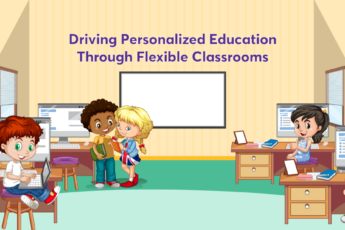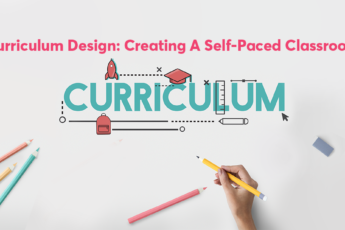How Children Learn Through Play

Early experiences during the period of rapid brain growth until the child is eight can influence future learning, health, and behaviour. Studies conducted by the Harvard Centre for the Developing Child show us that a child’s brain makes one million new neural connections per second in the early years. Subsequently, children deprived of developmentally appropriate stimulus in these early years are at risk of lagging behind their peers.
Given the widespread agreement in research and education literature that discovery-based methods could be more effective in academic and cognitive development, play-based pedagogy is a powerful mechanism to support early learning. Numerous researchers agree that learning through play builds a foundation for creativity, intellectual growth, and problem-solving ability in children.
*Why is play-based learning so important? Read this article to find out.
The importance of play-based learning has been recognised by the New Education Policy (NEP) of 2020, which outlines an educational transformation based on the principles of a play-based approach to early childhood education.
However, simply sending children off to play will not culminate in them acquiring essential foundational skills. Facilitators are needed at each level of the early education landscape, from administrators, to teachers, and parents, if we are to insert effective play-based instruction into daily activities.
THE BENEFITS OF PLAY-BASED LEARNING
A quick glimpse at how play-based learning strengthens many areas of a child’s development:

WHAT SKILLS DOES PLAY-BASED LEARNING DEVELOP?
Much of the early learning programs developed by experts include experiential forms of learning, including play-based instruction.
For instance, Square Panda India uses our expertise in Early Childhood Care and Education (ECCE) to design a curriculum that strategically embeds play into our learning system. Our program weaves in gamification and storytelling as a part of our experience-based learning model, ensuring children are constantly engaged and enjoying their learning.
These play-based activities and learning games expose children to a new skill:

HOW CHILDREN LEARN THROUGH PLAY
By his own admission, Albert Einstein’s introduction to scientific inquiry came about accidentally, with play. This pivotal event occurred when he was just four or five years of age, stuck in bed due to an illness. Seeing his boredom, his father handed him a magnetic compass to play with, and Einstein spent hours twirling the compass this way and that, wondering why the needle kept pointing north. This experience left a lasting impact on his mind, leading him to believe that a greater truth was hidden behind everything.
“Play is a powerful instrument to guide knowledge and education, and is, in fact, the key to learning. We’ve seen the research, and have found through our own expertise and case studies, that play-based instruction enriches the early education experience while reinforcing essential skills like literacy and numeracy, inquiry, expression, creativity, experimentation, and teamwork.”
– Ashish Jhalani, MD, Square Panda India
Young children learn differently from adults, taking inspiration from pretense and their imagination. Play brings together the logical and creative parts of their brain. Children tap into various skills as they play, creating an outlet for stress and anxiety at the same time. They begin to communicate ideas, develop a foundation for literacy and math, understand vocabulary, learn about actions and consequences, build deeper understandings about social relations, and recognise how their initiative influences decisions and self-choice. Researchers have even found that play helps children regulate their own emotions, helping them think before they act. Their experience with play-based learning helps children become thriving adults capable of living in any range of personal and professional environments.
“The heart (human values and ethics), the head (our minds), and the hand (our bodies), can be holistically balanced with play and activities”
Says early years’ author, educator, teacher trainer, and content developer, Sonia Relia
*Watch her educational series with Square Panda India, called Square Panda Thursdays, here.
The education space is evolving; early childhood educators, Anganwadi workers, and adults responsible for imparting education must strive to create a play-friendly learning atmosphere with an appropriate balance of play and academics to reach young learners naturally. This is the best way to bring tangible results to children’s growth.
See how Square Panda India is helping ensure that today’s young minds become tomorrow’s visionaries: ecce.squarepanda.in
Share the learning; share this article!




Leave a Comment